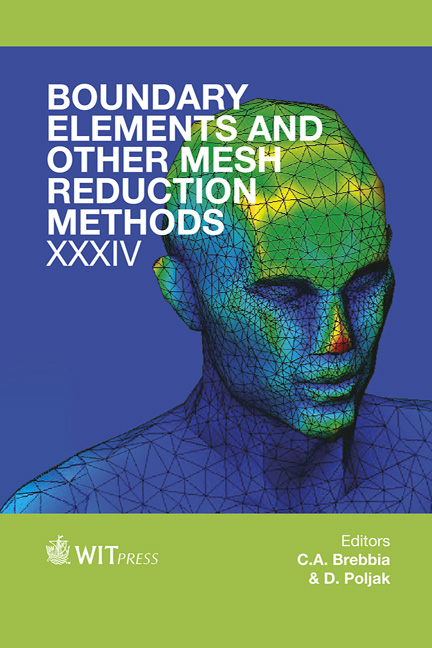On The Use Of Isoparametric Elements For BEM Modeling Of Arbitrarily Shaped Thin Wires In Electromagnetic Compatibility Applications
Price
Free (open access)
Transaction
Volume
53
Pages
10
Page Range
297 - 306
Published
2012
Size
437 kb
Paper DOI
10.2495/BE120261
Copyright
WIT Press
Author(s)
D. Poljak, V. Doric & D. Cavka
Abstract
The paper deals with the frequency domain Galerkin-Bubnov scheme of the Indirect Boundary Element Method (GB-IBEM) for the solution of the Pocklington integral equations for arbitrary thin wire configurations. The presence of a lossy media is taken into account by using both the reflection coefficient approximation and the rigorous Sommerfeld integral formulation. Some illustrative computational examples related to power line communication systems (PLC) and grounding systems are presented. Keywords: boundary elements, frequency domain modeling, Pocklington equation, thin wires of arbitrary shape. 1 Introduction The most rigorous approach to analyze the electromagnetic field coupling to arbitrary configurations of overhead and buried wires, respectively, is related to the use of the antenna theory (the full wave approach) [1, 2]. Such a formulation is usually based on a corresponding set of the Pocklington integral equations [3, 4]. If one deals with the frequency domain formulation the related transient response is evaluated via the Inverse Fourier Transform (IFT). An important feature of the integral equation approach is the use of isoparametric elements for an efficient treatment of curved wires, which is not readily the case with a transmission line approximation [4]. On the other hand, the most serious drawback of the antenna theory is relatively long computational time required for the analysis of complex structures [1, 2]. The excitation of aboveground and belowground wire configurations is of particular interest in electromagnetic compatibility (EMC). The knowledge of
Keywords
boundary elements, frequency domain modeling, Pocklington equation, thin wires of arbitrary shape.





